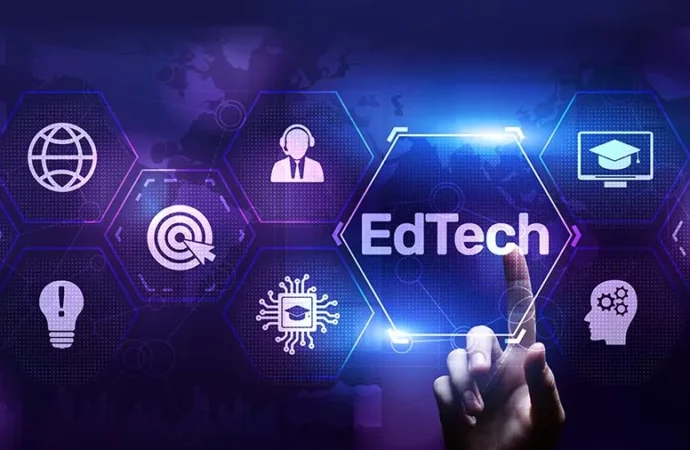Some interesting elements about this booming industry that many, despite being daily users of ed-tech platforms, are unaware of.
If there’s one industry that has grown tremendously during the Covid-19 Pandemic, it is Ed-tech. With lockdowns all over the world disrupting traditional face-to-face ways of teaching and learning, it’s no surprise 2020 saw the ed-tech industry surge and boom like never before.
When one thinks about Ed-tech, one thinks about the bigshots like Byjus, Upgrad, Unacademy, Vedantu, etc., but there exist some interesting elements about this booming industry that many, despite being daily users of ed-tech platforms, are unaware of.
1. Tech-Enabled Immersive Learning Is The Way Forward In Education Sector
Extended reality is an umbrella term for virtual reality, augmented reality, or the combination of related technology with the real environment. At present it is one of the most common edtech trends.
A look at Google search result history indicates that the searches for “extended reality” increased by 3,233% since the year 2017. The VR headset price is already at its lowest rate and is expected to drop further to $200 by the year 2023. The total value of AR in the education sector is also expected to reach $5.3 billion by 2023.
2. Ed-tech contributes over £1 billion to the UK economy every year
Edtech is a huge contributor to the UK economy, and investment in the burgeoning Edtech space is set to only go over $252 billion in the coming years. The United Kingdom is also home to Europe’s largest tech cluster.
Edtech is bound to remain an indispensable part of the digital ecosystem in the UK in the future years. Reports have revealed that Ed-tech is currently contributing over 1 Billion Euros to the UK economy every single year
3. The estimated value of Unacademy is $510 Million
The Bangalore-based leading Indian online education technology company Unacademy‘s estimated worth is an astounding $510 Million.
Started as a youtube channel in the year 2010, the ed-tech platform has witnessed tremendous growth over the years. The company currently has a network of over 12,000 educators and also owns the Youtube-based online teaching platform WiFiStudy.
4. Leveraging Omnichannel Remains The Best Way For Edtech Platforms To Target Audience
Creating a proper channel to capture leads from multiple sources has helped edtech platforms flourish over the years. Capturing the lead preferences and activities via platforms like Shiksha.com, Justdial, Collegedekho, and similar education marketplaces have helped edtech firms over the years personalise their communication.
Utilising omnichannel help ed-tech platforms convey the message to the target group more effectively.
5. The global education technology market size was valued at USD 106.46 billion in 2021
Several reports have revealed after the onset of the Covid-19 Pandemic, the edtech market has witnessed an unprecedented surge.
Learners and students are now increasingly shifting toward eBooks that can be accessed online from anywhere across the world. Shift to online classes owing to the Pandemic has majorly contributed to the increase in market size of the global educational technology market size.
The fact that digital books are easily available in different languages and can be easily translated and retrieved by a wider user base is also tempting more learners to try their hand at edtech platforms.
Learners, especially those with physical disabilities, are also now able to engage in class discussions more due to the presence of edtech platforms. Hearing-impaired learners can also now listen to the educational content in an audio format to improve their vocabulary and encourage better interpretive reading.

























Leave a Comment
Your email address will not be published. Required fields are marked with *